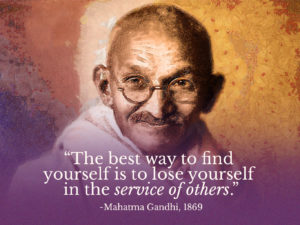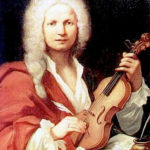Graduating from Faith and Rituals
When a man follows the way of the world, or the way of the flesh, or the way of tradition – when he believes in religious rites and the letter of the scriptures, as though they were intrinsically sacred – knowledge of Reality cannot arise in him. (Adi Sankara in Viveka Choodamani)
The article “Are Mythologies Fictional and Rituals Irrational?” theorized that mythologies are, in fact, stories of our ancestors. They are moral frameworks that evolved from the real-life experiences of our ancestors. And, we inherited them as a gift from our ancestors.
Why do we need a moral framework? Because, as humans, we are affected by duality. Duality, as Aristotle says, “…is the human predicament.” Animals do not suffer from duality. Duality arises because the human mind is constantly oscillating between the divine and undivine thoughts and conduct. For example, we would express feelings of kindness, love, and compassion to others; a few moments later, we would express feelings of anger, hatred, and jealousy to others. This alternation between positive and negative emotions arises without conscious effort. If we must learn to manage this duality, we need a teacher. We find such teachers among our mythical heroes.
The stories of our mythical heroes illustrate to us the consequences of right versus wrong, moral versus immoral, and ethical versus unethical conduct. For example, the story of Ramayana is not about a prince named Rama, who was deprived of the kingdom to which he was entitled. It is about the values that Rama exemplified: duty, detachment, dedication, and righteous conduct. Mahabharatha is not a story about feuding families. It is about the struggle between moral and immoral and ethical and unethical conduct and the consequences of one over the other. The story of Krishna is not about a cowherd. It is about the concept of dharma that unifies all aspects of life – spirituality, social order, rights and duties, ethics, and morals.
While the heroes from mythology can show us why we should choose a righteous path, they cannot carry us through such a path. We must travel the path ourselves – by changing our conduct and by living a life of service and sacrifice. But, when we ignore the intrinsic messages and view mythology more as pageantry and rituals as an excuse to display one’s caste, creed, and superiority, we will fail to graduate from life. As Dr. S. Radhakrishnan says, “Bead necklaces, rosaries, triple paint on the forehead, or putting on ashes, pilgrimages, baths in holy rivers, mediation, or image worship do not purify a man as service of fellow-creature does.” The messages from the mythical teachers are clear: live a life of service and sacrifice. Everything else is secondary.
How feasible is living a life of service and sacrifice in today’s ‘material’ world? The answer is: it is feasible. We must try. As the real-life stories of Mike and Janaki highlighted (“True Karma-Yogis Indeed” http://www.vidyarthi.us/karma-yogis-among-us-2/), even simple gestures of love, compassion, and sacrifice go a long way. When we ignore these objectives, we render mythology to be fiction and rituals, to be irrational.
Dr. Ram S. Sriram
www.vidyarthi.org





Leave a Reply
You must be logged in to post a comment.